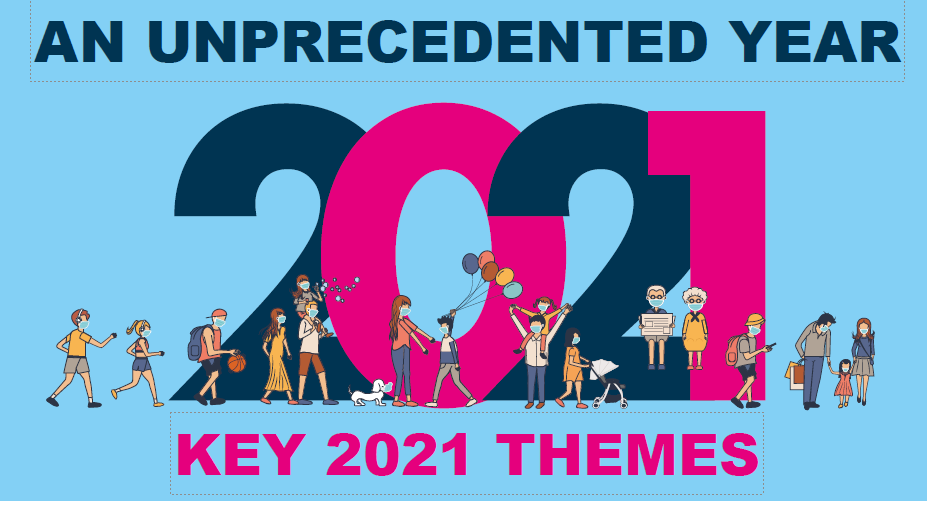Knowledge Hub
Join the Conversation!
Impartial and independent, ThoughtLeaders4 HNW Divorce Knowledge Hub hosts cutting edge industry content and insight.
Email maddi@thoughtleaders4.com to submit content.
An Unprecedented Year – Key 2021 Themes
Date: 04/01/2022 Type: Articles Community Magazine Topic: HNW Divorce | ADR | Children | Client Perspective | Finances | Modern Family | Remote Hearings | Arbitration | Private FDR’s | Early Neutral Evaluations |The year 2021 began with the country being in its third national lockdown and trying to navigate its way through the Covid-19 pandemic. In his ‘Road Ahead’ article of 10 January, Sir Andrew McFarlane, President of the Family Division, noted footfall in court buildings would be kept to a minimum, courts would facilitate remote attendance of all or some of those involved in hearings as the default position. Mass vaccinations were a most welcome light at the end of the tunnel, although the return to anything like the normal working of a family court may not be achieved for some time. The President predicted that beyond the relaxation of the rules, there would still be a significant proportion of remote and hybrid hearings as the country got back to normality. The ‘Road Ahead’ guidance given in June 2020 would continue to apply, with the key concerns being the significantly high volume of work remaining with an expectation of limited facilities to conduct face-to-face hearings. It was accepted that any delay in cases would prejudice the welfare of children; adjourning cases for many months would not be an option. By July 2021, the President continued to be profoundly impressed by the delivery of family justice in navigating a complicated system so different from the norm.
On 20 October 2021, the Farquhar Committee produced a report on the role of remote courts in the post-pandemic environment and the procedures of the Financial Remedies Court (FRC) 1. Amongst its findings, advantages of remote hearings outweighed the disadvantages and recommended that most hearings at which no evidence is to be given, should be heard remotely. Electronic bundles would remain the norm unless otherwise ordered.
There was also guidance specific to the FRC to include time estimates for specific hearings, court staffing, length of court documents, hearing dates and specific references to Forms E, consent orders. The changes in the family courts are expected to be gradual, and policies kept under review as the court continues its recovery from the pandemic which has undoubtedly accelerated the modernization of the family court; the positive elements of the pandemic will be retained.
In this article, I explore some 2021 themes that have been key and continue to play part in unprecedented times in the family law world.
Mediation
In March 2021, the Ministry of Justice announced a £1 million mediation scheme. 2000 families would be able to apply for a £500 voucher towards mediation. Shortly after the announcement, it was reported that Mediation Information Assessment Meetings (MIAM’S) had increased by 14% between October and December 2020, compared to the previous year. By 25 June 2021, these had increased by 43% in the period April to June 20212. Owing to its popularity, on 5 September, the government extended the scheme by an additional £800,000. MIAMS and family mediations generally decreased significantly following the Covid-19 restrictions, but volumes have now increased and exceeded pre-covid levels. The backlog and delays seen in the courts have directed more people to mediate their family disputes with the hope of a quicker conclusion. Until the court fully recovers, mediation numbers are likely to continue to increase.
The same could be said for other alternative dispute resolutions (ADR), Private FDRs and Arbitration.
A July 2021 report by a law firm found that a quarter of people wished they had used mediation/
arbitration as the answer to divorce.
This report emphasises the need for family law practitioners to advise their clients on ADR schemes at a time where the court is struggling with listings. In a world where family law is rapidly changing, the overwhelmed court system has made room for alternative solutions.
ADR Case spotlight - in Haley v Haley [2020] EWCA Civ 1369 clarification has been provided to confirm that arbitral awards can now be challenged if there is a real prospect of success or that the award was wrong. In the subsequent case of A v A (Arbitration: Guidance) [2021] EWHC 1889
(Fam), Mostyn J took the opportunity to set down some procedural guidance concerning challenging an arbitral award.
No fault divorce
The government’s Divorce, Dissolution and Separation Act 2020, passed in June 2020 reforms the divorce process to remove the concept of fault. New legislation will replace the five facts with a new requirement to provide a statement of irretrievable breakdown, remove the possibility of contesting the divorce, introduce an option for a joint application and use of plain English. Following the case of Owens v Owens [2017] EWCA Civ 182, family law practitioners and their clients were delighted by the change, hailed as the biggest shakeup in divorce law for 50 years, eliminating the impact allegations and blame have on family, particularly, children. The intention was for the law would come into force from autumn 2021 but the government announced in June 2021 that its application would be delayed until 6 April 2022. The impact of this change is so great that some clients are willing to put matters on hold to avoid the unnecessary acrimony brought by the current blame system.
Domestic Abuse Bill
Acclaimed as one of the successes of 2021, the Domestic Abuse Bill became law on 29 April; 4 years after its first mention in the Queen’s speech. For the first time, the legal definition of domestic abuse will incorporate a wide range of abuses beyond physical violence, including emotional, coercive or controlling behaviour and economic abuse. Within the family courts, actions and support for victims will be introduced to ensure victims have better protection and access to special measures (screens and video links) in the court room. It will also prevent abusers directly cross-examining their victims. The police and the courts will be given new powers to hand out orders and prevent offending.
The significant increase on domestic violence was widely reported during the Covid-19 pandemic. In their 18 August 2021 report A Perfect Storm – The Impact of The Covid 19 Pandemic on Domestic Abuse Survivors, Women’s Aid reported that domestic abuse had worsened during the pandemic.
- 61% of those experiencing domestic violence reported it had worsened, with more than two thirds stating they had no one to turn to during lockdown
- Over 53% of the victims reported that children had seen more abuse and 33% said the abuser had shown an increase in abusive behaviour towards children
- The pandemic saw a 40.6%reduction in the number of refuge vacancies in England during the period 23 March to 31 May 2020
The introduction of the law has provided markers for change to include the Home Office awarding £11.3 million to 25 Police and Crime Commissioners towards domestic abuse intervention programmes.
Case spotlight - H-N and Others (children) (domestic abuse: finding of fact hearings) [2021] EWCA Civ 448 gives guidelines on how family law practitioners should address elements of controlling and coercive behaviour in schedules of allegations, within children proceedings.
Online Divorce and Financial Remedy Proceedings
HMCTS have expanded the online divorce and financial remedy portal since its launch in May 2018, asA of June 2021, 86% of all citizen divorce applications and 75% of all solicitor applications were via the portal. In progressing the online expansion, as of 13 September 2021, it became mandatory for all divorce applications to be made online for represented petitioners. January 2021 also saw the launch of online contested financial remedy applications, by way of Form A. On 21 June 2021, all FRC became digital. It is expected that on 6 April 2022, when the Divorce Dissolution and Separation Act 2022 comes into force, there may be further changes made to the Family Procedure Rules and the online portal. Whilst HMCTS was on its way to becoming more ‘online’, the pandemic has played a part in accelerating the process.
I conclude by nothing that whilst Covid-19 has impacted different sectors in varied ways, it is clear that it has helped improve the justice system in many ways.
Author
Olive Gathoni – International Family Law Group
Our HNW Divorce Corporate Partners
















